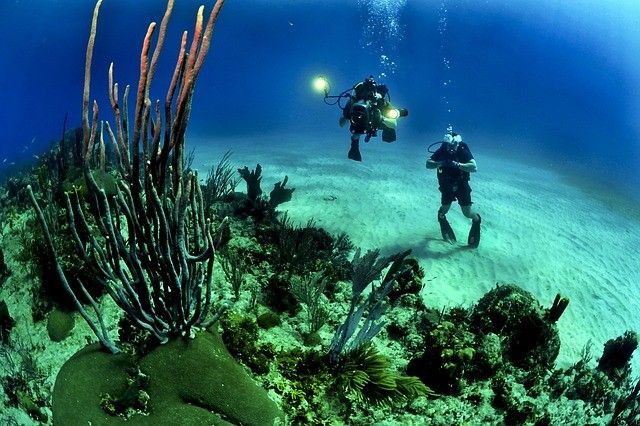
Is deep-sea mining the industry's final frontier? And do you have the skills needed to succeed?
A few weeks ago, deep-sea mining suddenly got a lot of press. Boss Magazine called it mining’s “final frontier”.
The flurry of media excitement followed the discovery by British scientists of an underwater deposit of diverse minerals in the Atlantic Ocean near the Canary Islands. Among the minerals found — 1000 metres below the ocean surface — was tellurium, which is used in the making of solar panels, wind turbines and electronics. It was no small find. The deposit is 50,000 times more concentrated than deposits found on land.
Mining the seabed isn’t a fantasy. In fact, DeBeers has been mining diamonds from the seabed off Namibia for years. And we’re only a couple of years away from the world’s first truly “deep-sea mine” opening. Nautilus Minerals plans to mine copper, silver and gold from the waters off the coast of Papua New Guinea from 2019.
So, is the ‘final frontier’ of mining also its future? And what would the jobs that come along with that look like?
Deep-sea mining jobs are likely to involve robots
While there is a hardy breed of miner who dives for diamonds in Africa, thanks to the crushing pressures deep beneath the water, it’s highly likely jobs in deep-sea mining will be highly technical and will involve robotics. Nautilus Minerals plans to send teams of 200-ton robots to the sea floor, about 1,800 metres below surface. The slurry they harvest will be pumped back up to a support vessel on the surface.
A recent article in Business Insider explained the process: “The massive, subsea robots will be deployed via a nearly 230-metre vessel. Three robots will be sent to collect the ore — all with different jobs. One chews through the metal-rich chimneys that form as a result of super-hot water coming out of sulfurous vents in the seafloor. The second robot then comes in and uses its strength to pulverize rock walls. The third then feeds the crushed rock up a pipe that is dangling from the vessel the robots were sent out on.” It’s all operated by remote control — so it’s a special but incredibly valuable skill set (after all, during their initial period of operation these robots are expected to bring up to the surface 2.5 million metric tons of ore containing metal that could have a value of more than $1.5 billion).

There’ll be a huge role for environmental experts
There’s huge debate about whether we should actually mine the seabed at all, thanks in large part to the potential environmental impacts. They could be enormous, according to Professor Philip Weaver, of Seascape Consultants, in a recent report from Horizon magazine. He said “plumes” of dirt particles suspended in the water were the biggest problem because they can spread over large areas of the seabed, devastating ecosystems and potentially exposing marine environments to toxic chemicals.
“You can destroy the area you mine, that’s bad enough, but you can also destroy huge areas around the mine,” he told the magazine. “The impacts of particle rain falling down on fauna can clog the filter feeding mechanism of some organisms, which may then die. This is a challenge for the (deep-sea) mining industry.”
With so much at stake, environmental considerations will play a big role in deep-sea mining enterprise — so there’ll be important jobs for specialists.
Still remote, somehow familiar
Whatever deep-sea mines open in the future, whatever they’re mining, there’s likely to be a few conditions very familiar to those who get jobs in the industry. For a start, these workplaces are going to be remote — possibly thousands of miles out to sea. Much like working on oil rigs or even outback mine sites, work is likely to involve long-range rosters and FIFO air travel.
If you’re looking for your next opportunity in the mining industry, contact the team at Mining People International.